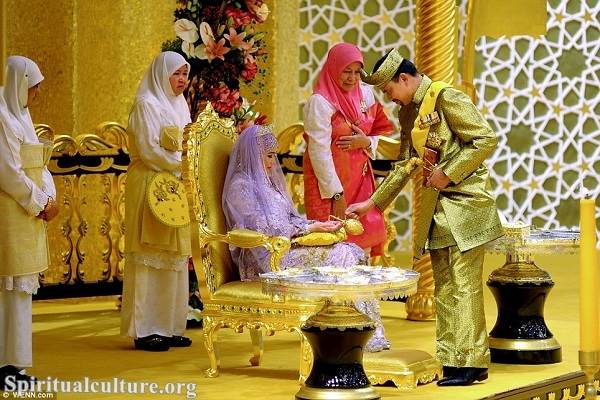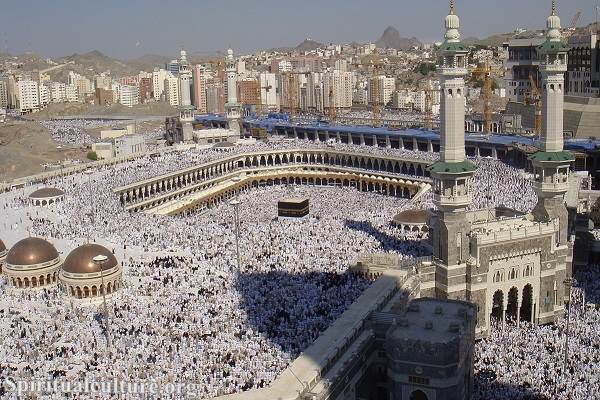Justice — a word that stirs both hope and reckoning — lies at the heart of every society and spiritual tradition. In Islam, justice (‘adl) is not merely a human endeavor but a divine imperative. It is both a name of God and a central theme in the Qur’an. For Muslims, to be just is to reflect the very nature of the Divine.
In a world where injustice seems to shout louder than righteousness, the Islamic vision of justice offers both a mirror and a guide — reminding us that justice begins not in courts or politics, but in the soul. As Spiritual Culture, let us explore this sacred principle and how it shapes not only law and governance but daily life, ethical choices, and our ultimate accountability before God.
Justice as a Divine Attribute
God Is Just: Al-‘Adl, the Equitable
One of the 99 Names of God in Islam is Al-‘Adl, which means The Utterly Just. This name reveals that justice is not simply what God does — it is who God is. The Qur’an declares:
“Indeed, Allah does not do injustice, [even] as much as an atom’s weight…”
— Surah An-Nisa (4:40)
In the Islamic worldview, justice is grounded in God’s nature. He is the ultimate standard, the source of all balance (mīzān) and fairness. Just as the planets move in harmony, so human beings are meant to live in just proportion — with God, with others, and within themselves.
Justice Reflects Cosmic Order
The Qur’an links justice with the cosmic order:
“And the heaven He raised and imposed the balance — that you not transgress within the balance. And establish weight in justice and do not make deficient the balance.”
— Surah Ar-Rahman (55:7–9)
This profound passage suggests that justice is not just a social idea — it is woven into the fabric of creation. To live unjustly is to disrupt the balance of existence itself.
Justice in the Qur’an and Sunnah
The Qur’anic Mandate to Uphold Justice
Islam places great emphasis on justice as a universal obligation. It is not confined to believers or Muslims, but extends to all of humanity. The Qur’an commands:
“O you who have believed, be persistently standing firm in justice, witnesses for Allah, even if it be against yourselves or parents and relatives…”
— Surah An-Nisa (4:135)
This verse is striking. It calls believers to bear witness to the truth, even if it means speaking against their own interests. Justice, in this view, transcends loyalty to tribe, class, or blood.
The Prophet Muhammad as a Model of Justice
The life of the Prophet Muhammad ﷺ is filled with examples of principled justice. He was known as Al-Amin (the Trustworthy) even before his prophethood. During his leadership in Medina, he administered justice fairly among Muslims, Jews, and pagans alike.
One well-known story involves a Qurayshi woman from a noble family who committed theft. Some companions wished to spare her punishment because of her social status. But the Prophet ﷺ responded:
“By Allah, if Fatimah, the daughter of Muhammad, were to steal, I would have her hand cut off.”
— Sahih al-Bukhari
This was not cruelty — it was a commitment to impartiality. Justice in Islam must be blind to status and faithful to truth.
Types of Justice in Islamic Thought
Social Justice: Fairness for All
Islam emphasizes a society where all individuals — rich or poor, man or woman — are treated with dignity and fairness. This includes:
- Economic justice: Zakat (obligatory almsgiving) redistributes wealth.
- Gender justice: While often misunderstood, the Qur’an upholds spiritual equality between men and women (see Surah Al-Ahzab 33:35).
- Racial justice: The Prophet declared, “No Arab is superior to a non-Arab, and no white is superior to a black…”
Justice is not optional in Islamic ethics — it is essential for a sound community.
Legal Justice: The Shari‘ah Framework
Islamic law (shari‘ah) is not just a set of do’s and don’ts; it is intended to uphold justice. The scholars of Islamic jurisprudence developed complex principles to ensure:
- Due process
- Presumption of innocence
- Fair contracts
- Proportional punishment
Justice is the soul of the law. If a legal ruling leads to clear injustice, classical scholars such as Imam Ibn al-Qayyim emphasized that it must be re-evaluated.
“Wherever the signs of justice appear, there lies the Shari‘ah of God.”
Personal Justice: Integrity of the Soul
Before social reform, Islam calls for inner reform. A person cannot establish justice in the world while harboring injustice within. The Prophet ﷺ said:
“Help your brother, whether he is an oppressor or oppressed.”
His companions asked, “How do we help him if he is the oppressor?”
He replied, “By stopping him from oppression.”
— Sahih al-Bukhari
This redefines justice as responsibility. To remain silent in the face of wrongdoing is to be complicit.
Mercy and Justice: Are They Opposed?
Balancing Divine Mercy with Justice
A common misconception is that justice must be harsh. But Islam sees justice and mercy not as rivals, but as partners.
The Qur’an proclaims:
“My Mercy encompasses all things…”
— Surah Al-A‘raf (7:156)
Justice creates order. Mercy restores what is broken. In Islam, God judges with perfect justice, but also with unfathomable mercy. On the Day of Judgment, the Prophet ﷺ taught that God will show more compassion than a mother to her child.
Thus, Islamic justice is firm yet forgiving, always seeking restoration over revenge.
Forgiveness as a Higher Justice
Islam encourages forgiveness as a virtue above mere retribution. The Qur’an says:
“But if you pardon and overlook and forgive — then indeed, Allah is Forgiving and Merciful.”
— Surah At-Taghabun (64:14)
This does not mean injustice should go unchallenged — but that when power is in your hands, to forgive is divine imitation. It frees both the victim and the wrongdoer.
Justice in Practice: Real-World Applications
Justice in Leadership
The Prophet ﷺ taught that one of the seven people granted divine shade on the Day of Judgment is:
“A just ruler…”
— Sahih al-Bukhari, Sahih Muslim
Leadership in Islam is not about domination but servant stewardship. Caliphs like Umar ibn al-Khattab were known to patrol the streets at night to ensure the needs of the people were met.
Economic and Ethical Fairness
The Qur’an warns against economic exploitation:
“Woe to those that deal in fraud…”
— Surah Al-Mutaffifin (83:1)
Islamic commerce demands honesty, fair pricing, and fulfillment of contracts. A just economy is one where both buyer and seller win — not where one thrives on the loss of another.
Justice for the Oppressed
The Prophet ﷺ said:
“Beware of the supplication of the oppressed, for there is no barrier between it and Allah.”
— Sahih al-Bukhari
This hadith echoes throughout centuries of Islamic activism. From liberating slaves to standing with the poor, Islam has always demanded siding with the marginalized.
Justice Beyond This World: The Final Judgment
In Islam, ultimate justice may not be seen in this world — but it is guaranteed in the next.
“And We place the scales of justice for the Day of Resurrection, so no soul will be treated unjustly at all…”
— Surah Al-Anbiya (21:47)
Every injustice, no matter how hidden or ignored, will be brought to light. Every victim will be heard. Every soul will be recompensed.
This gives the believer hope — that nothing is forgotten, and God is always watching.
Reflect and Reimagine: Living Justly Today
Justice in Islam is not just a courtroom term. It is a spiritual compass, a way of being. It calls us to fairness in our speech, truth in our dealings, and compassion in our judgments. It asks us to check our egos, challenge our biases, and rise above selfishness.
In a world hungry for equity and dignity, Islam’s concept of justice invites us to root our actions not in vengeance, but in truth and mercy.
So ask yourself:
- Am I fair in my relationships?
- Do I speak truth, even when it costs me?
- Can I forgive, even when I’m wronged?
To be just is to walk in the footsteps of the Divine — to reflect the sacred balance that upholds the universe.
This is justice. This is Islam.
Let it begin with you.


